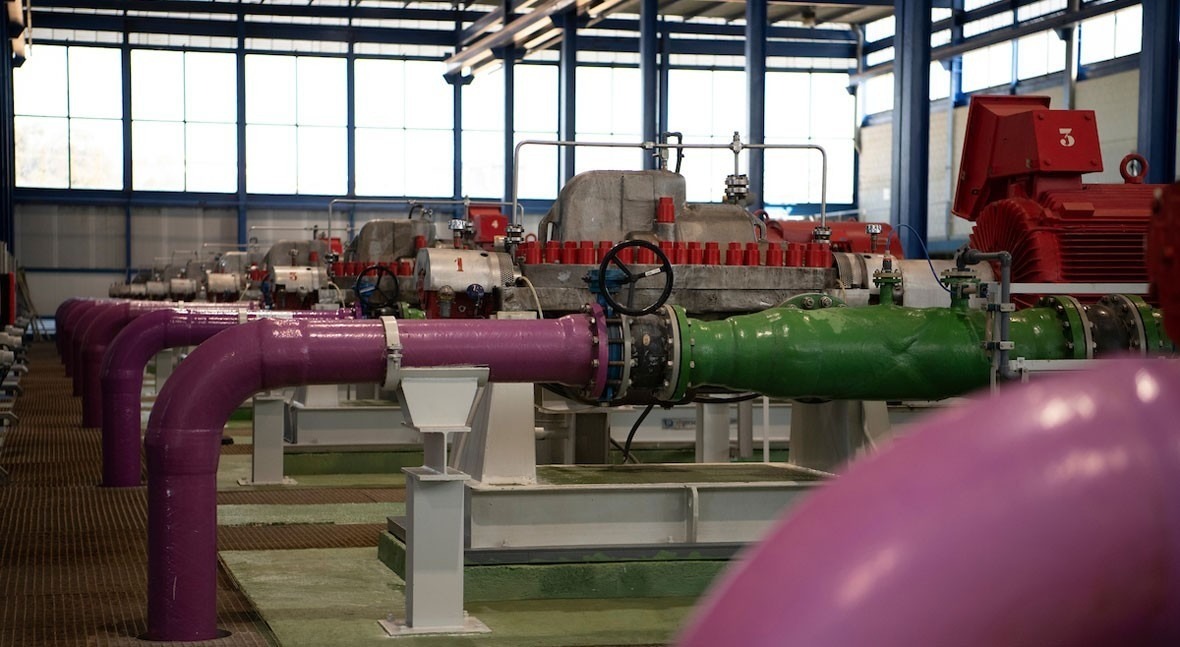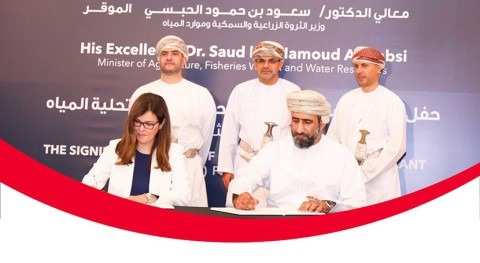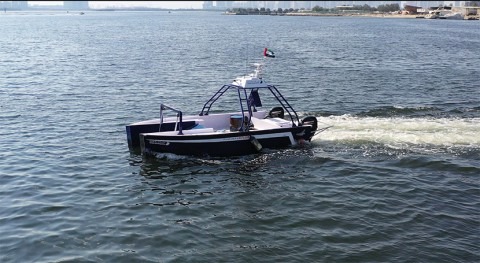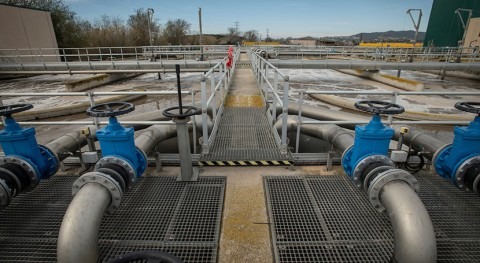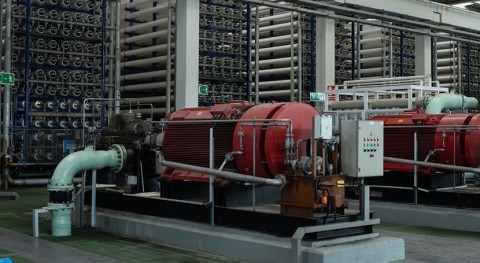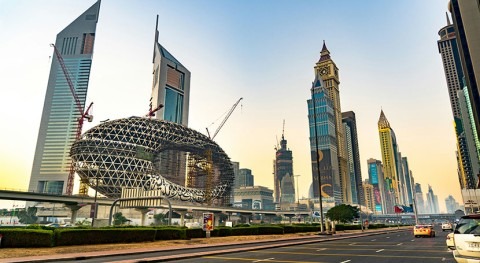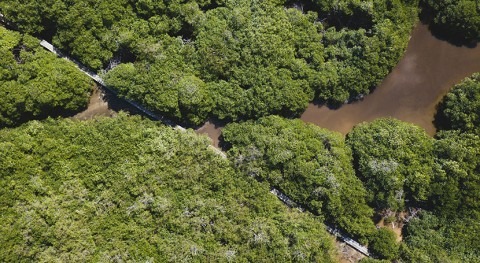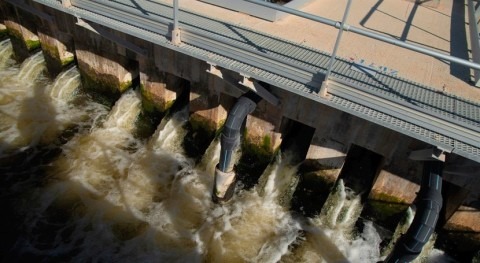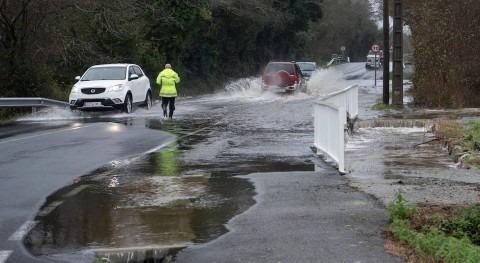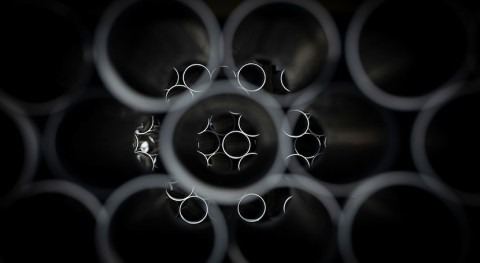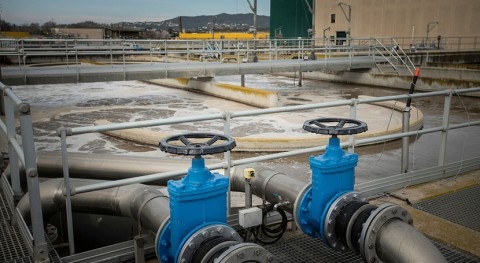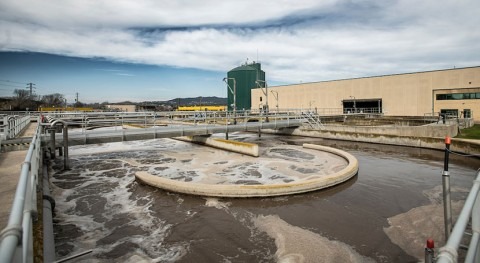In the current context of climate change and water scarcity, desalination is increasingly seen as a sustainable solution to alleviate water resource scarcity, a pressing issue in some regions of the planet.
Desalination technology, which transforms seawater or brackish water into fresh water, is gaining ground globally, not only as a response to the need for water resources, but also as a resilience strategy in the face of climate change and population growth.

Infographic prepared by Esther Martín Muñoz/SWM.
Saudi Arabia
Saudi Arabia is currently the world's largest producer of desalinated water: desalination has become a viable and cost-effective solution for the country. The Saudi Vision 2030 plan has ambitious targets to expand its desalinated water production.
By 2020, the country already had 35 desalination plants, underscoring the nation's commitment to expanding and improving its desalination infrastructure. Major desalination plants include: Shuqaiq 3, recognized as one of the most complex, innovative and sustainable plants.

Shuqaiq 3 desalination plant (Photo: Almar Water Solutions).
Israel
In Israel, the only source of fresh water is the Sea of Galilee, which accounts for 20-30% of the total water supply. Located in one of the areas with the lowest rainfall, the country relies on desalination to supply water to the population, not only for human consumption, but also for agriculture. This has made this technology the main source of water in Israel, with 90% of desalinated water obtained from five main plants.
The Sorek desalination plant, fifteen kilometers from Tel Aviv, is the largest in the country and one of the largest in the world. Commissioned in 2013, it has a capacity of 640,000 m3/day and covers 20% of Israel's municipal water demand.
Other important plants in the country supplying drinking water to the population are those of Ashkelon and Hadera.
United Arab Emirates
The UAE is one of the world leaders in desalination, relying almost exclusively on this technology for its drinking water supply due to the natural scarcity of water resources (90 % of drinking water comes from desalination plants). Abu Dhabi, for example, is one of the world's leading producers and consumers of desalinated water, with 9% of the global total and nine desalination plants producing 4.13 million cubic meters per day for residential use and economic activities.
Plants such as the Jebel Ali plant in Dubai and the Taweelah plant in Abu Dhabi are essential for the country, providing millions of liters of water daily for consumption and irrigation. In addition, the UAE is also at the forefront of research into more efficient and sustainable desalination technologies, especially reverse osmosis. Proof of this is the Independent Reverse Osmosis Water Project Shuweihat 4 Reverse Osmosis (S4 RO).

Jebel Ali Desalination Plant (Photo: ACCIONA).
Morocco
Morocco is implementing a comprehensive strategy to address its water crisis, with desalination as the key solution. As announced earlier this year by Nizar Baraka, Morocco's Minister of Infrastructure and Water, 50% of the country's drinking water supply will come from desalination by 2030.
Among the facilities that have been commissioned, with a total of 15 desalination plants under development, the Casablanca desalination plant, which will be the second largest desalination plant in the world, stands out.
United States
On a smaller scale than the previous countries is the United States, but it is also a notable case to mention. The state of California has historically faced drought-related problems, leading it to adopt innovative solutions such as desalination. The Claude "Bud" Lewis' Carlsbad plant is the largest, most technologically advanced and energy-efficient seawater desalination plant in the country. This facility provides more than 190 million liters of potable water per day, helping to alleviate dependence on external water sources and contributing to the region's water stability.
In addition, the Tampa desalination plant, located in the state of Florida, celebrated its twenty-fifth anniversary in 2023. Its commissioning was prompted by the need to create new drinking water supplies that could alleviate environmental stress and meet the needs of the growing region.
Desalination is gaining ground as a resilience strategy in the face of climate change and population growth
Spain
Desalination in Spain is presented as a real, viable and safe alternative to supply problems, as in the current cases of Catalonia and Andalusia. In this regard, the Spanish government is investing in new desalination plants to address the water crisis and guarantee water supply in regions affected by drought.
The country is positioned as a leader in this field, both in terms of installed capacity and the development of its industry. Since the 1960s, when the first desalination plants were commissioned in the Canary Islands, the country has experienced significant growth in this sector, producing around 5 million cubic meters of desalinated water in almost 800 plants. Thus, in Spain, desalination is widely used in areas such as drinking water supply in coastal areas, agriculture, industry and tourism, thanks to outstanding facilities such as those in Alicante I and II (Alicante), Valdelentisco (Murcia), Torrevieja (Alicante), Aguilas/Guadalentin (Murcia), Bajo Almazora (Almeria), Carboneras (Almeria) and Sagunto (Valencia).
Of particular note are the desalination plants located in the Canary Islands, whose chronic water stress has led the archipelago to depend on desalination as its main source of drinking water.

